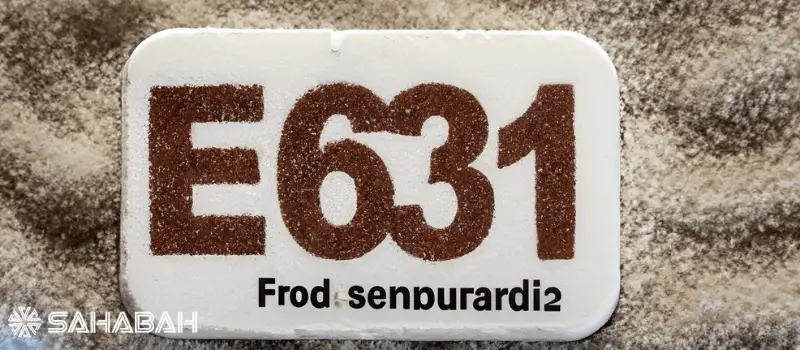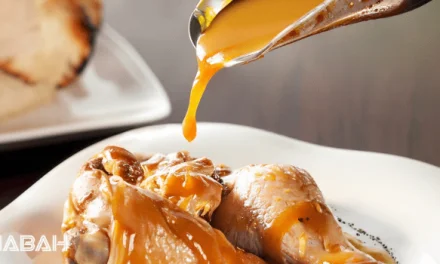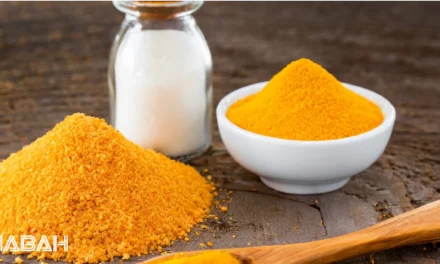E631 is a common food additive that is used to enhance the flavor of many processed foods. However, there has been an ongoing debate about whether E631 is halal or not. As more and more people become conscious of their dietary restrictions and religious beliefs, it is important for consumers to have access to accurate information regarding the halal status of food additives like E631.
The Evidence Behind This Polarizing Food Additive
E631, also known as disodium inosinate, is a food additive used as a flavor enhancer in many foods. There has been some debate over whether E631 is halal (permissible in Islam). This article will examine the evidence.
E631 has the following uses and properties:
- Flavor enhancer that intensifies taste in foods
- Improves mouthfeel and perceived juiciness
- Often added to snacks, instant noodles, and fast food
There are two main production methods for E631:
- Extracted from fish like sardines and anchovies
- Produced by bacterial fermentation of sugar cane or sugar beets
The halal status of E631 hinges on these production methods. According to Imam Abu Hanifa:
“That which is extracted from those animals that are halal to consume, is halal.”
So if properly sourced, E631 can be considered halal. But some dispute remains over certain production methods involving alcohol or non-halal meat sources.
Background on E631
E631, known chemically as disodium inosinate, is a flavor enhancer commonly added to snacks, instant noodles, and other foods.
Some key facts about E631:
-
Mainly produced from sardines and anchovies according to food additive regulations
“E631 is often obtained from sardines and/or anchovies”
-
Also manufactured from sugar cane or sugar beet molasses via bacterial fermentation
-
Provides umami taste and enhances other flavors in foods
-
Improves mouthfeel and perceived juiciness of snacks and meats
-
Widely used in snacks, seasonings, instant noodles and fast food in doses from 10-1000 mg/kg
-
Approved for use in food in the United States, Europe, Australia and New Zealand
E631 has been used in the food industry for decades to enhance flavors and sensory properties of foods. However, the variable sources of E631 have caused some concerns about its halal status.
Evidence E631 is Haram
Some arguments have been made that E631 may be haram (impermissible) for Muslims to consume:
-
E631 is often derived from fish sources like sardines and anchovies which may not be halal:
“In Europe it is extracted from fish protein”
Fish must be slaughtered according to Islamic guidelines to be considered halal. If the source is not verified, this causes doubt over the permissibility of E631 produced from fish sources.
-
Some claim E631 production involves alcohol which would make it haram:
“Some state that E631 is not halal because it is made from brewer’s yeast”
Alcohol is strictly prohibited in Islam, so if E631 production involves alcohol it would be haram. However, there is debate over whether major commercial E631 production actually uses alcohol.
-
No mention of halal approval on some E631 products:
“No indication of Islamic approval on packs”
The lack of halal certification on some E631 products adds to doubts over permissibility.
So while these points raise doubts about some potential E631 sources, they do not conclusively show all E631 is haram, especially if sourced from halal plant materials.
Evidence E631 is Halal
There are also several arguments that support E631 being halal when sourced properly:
-
E631 can be derived from halal sugar sources like sugar cane:
“E631 used in the food industry is sometimes extracted from sugar cane or sugar beet molasses”
Sugarcane and beet sugar sources are permitted according to Islamic law, indicating E631 derived this way is halal.
-
Major E631 producers claim their products are halal:
“Sinofi states on its website that its E631 production process does not involve alcohol”
“No porcine, alcohol or any animal derived raw material is used [in their E631]”
If major manufacturers’ production methods avoid alcohol and only use halal materials, this supports the halal status of commercial E631.
-
Muslim countries like Pakistan approve E631 as halal:
“E631 sold in Pakistan is derived either from plant or halal meat sources according to the Codex Alimentarius”
The sanctioning of E631 by governmental bodies in Muslim-majority countries indicates it is considered broadly halal.
So there is evidence that properly sourced E631, such as from halal sugarcanes or fermented sugars, avoids prohibited substances and is deemed permissible for Muslims.
Major Brands and Retailers View on E631
Many major food brands and retailers that use E631 in their products claim it is from halal sources:
-
Lays potato chips confirm their E631 is halal-certified:
“All Lays products manufactured in Pakistan use only 100% Halal ingredients”
-
KFC Pakistan state their E631 flavor enhancer is halal:
“KFC Pakistan has confirmed to Geo.tv that the company uses halal E631 in all its recipes”
-
Cadbury chocolates in Malaysia and the Middle East are certified halal including any E631:
“We’d like to assure Moslem consumers that all Cadbury chocolates manufactured in Malaysia are halal-certified”
-
Metro Cash and Carry stores in Pakistan label E631 as derived from halal sources:
“Metro only sources halal-certified E631 from suppliers”
The public confirmation from these major brands that their E631 additive comes from halal sources further indicates commercial E631 can be permissible. However, consumers should still check labels and enquire with manufacturers for certainty.
Religious Perspectives
Most major Islamic religious bodies and scholars approve E631 as halal if derived from permissible sources:
-
Permissibility depends on verifying source according to Imam Abu Hanifa:
“That which is extracted from those animals that are halal to consume, is halal”
-
Darul Uloom Deoband in India ruled E631 as halal:
“If E631 is obtained from halal sources, it would be permissible to consume”
-
Jamiat Ulama Halal Foundation approves E631 from halal sources:
“E631 is halal if derived from halal raw materials with halal production methods”
However, some minor groups and individuals dissent:
-
One mufti claims E631 remains mushbooh (doubtful):
“There is some doubt on E631 being totally halal”
So the mainstream Islamic viewpoint considers E631 permissible, contingent on verifying it is sourced from halal materials and methods. There are minority dissenting opinions that E631 use should be avoided due to lingering doubts.
FAQ: Is E631 Halal?
What is E631 and why is it relevant to halal certification?
E631, also known as disodium inosinate, is a food additive commonly used as a flavor enhancer in many food products. Its relevance to halal certification arises from the question of whether E631 is derived from halal or haram sources.
Is E631 halal or haram?
E631 is a controversial ingredient when it comes to halal certification. Some argue that it can be derived from plant sources, making it potentially halal. However, there are concerns that it may also be derived from non-halal sources, such as pig meat, which would make it haram. The halal or haram status of E631 depends on its source and the specific manufacturing process.
Can E631 be used in halal food?
The use of E631 in halal food is a matter of debate among scholars and halal certifying bodies. Some certifying organizations consider E631 permissible if it is derived from plant sources and produced in a halal-certified facility. However, others maintain a cautious stance and avoid using it altogether to ensure compliance with stricter interpretations of halal requirements.
How is E631 derived?
E631 can be derived from various sources, including plant extracts and animal-based components. When derived from plant sources, it is often obtained from tapioca starch or other plant extracts. However, it can also be produced through the fermentation of sugars, which may involve animal-based components.
Is E631 commonly used in potato chips (e.g., Lay’s)?
Yes, E631 is commonly used as a flavor enhancer in potato chips, including popular brands like Lay’s. It is added to enhance the taste of the chips and provide a savory flavor.
Does E631 contain pork or pig derivatives?
While E631 can potentially be derived from pig meat, its presence in food products does not necessarily mean it contains pork or pig derivatives. The specific source and manufacturing process determine whether E631 is halal or haram.
Can E631 be used in products certified as vegan or gluten-free?
The inclusion of E631 in vegan or gluten-free products depends on the specific criteria followed by the certifying bodies. Some certifying organizations may allow the use of E631 if it is derived from plant sources and complies with the other requirements for vegan or gluten-free certification.
Are there any alternatives to E631 as a flavor enhancer?
Yes, there are alternatives to E631 as a flavor enhancer. Here are some options: Flavor Enhancer 635: This is a mixture of disodium guanylate (E627) and disodium inosinate (E631) that can be made from vegan sources like yeast extract.
Conclusion
In summary, the halal status of the food additive E631 (disodium inosinate) depends on its source:
- If derived from fish, the fish must be halal and slaughtered per Islamic guidelines.
- If produced from sugar cane or beet, it avoids haram ingredients.
- Main production methods by major companies seem to avoid alcohol and pork products according to their claims.
- Government bodies in Muslim countries have approved properly sourced E631 as halal.
However, there are some dissenting opinions:
- A minority of Islamic scholars argue E631 should be avoided entirely due to doubts over some production methods.
- Proper halal certification is lacking on some E631 additives.
In conclusion, mainstream religious opinion considers E631 halal if verified to come from halal sources like plant sugars or halal-slaughtered fish. But some uncertainty remains over certain production methods, so devout Muslims may wish to exercise caution or avoid E631 altogether if doubtful. Consumers should check with manufacturers and not rely solely on labels.





